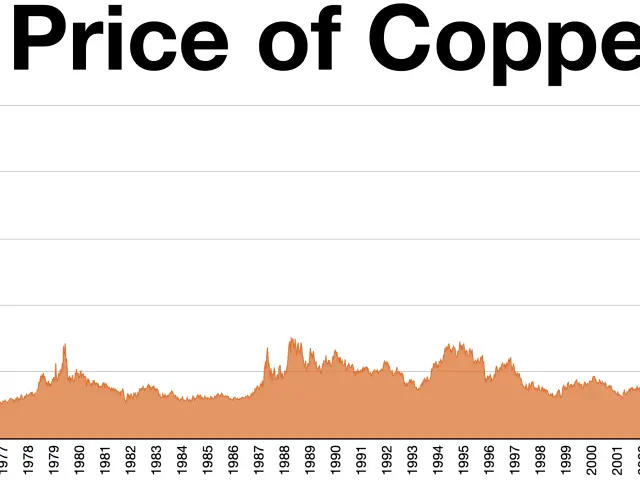Business Up for Sale? A Potent Insurance Choice Yields Intergenerational Riches
Unveiling Private Placement Life Insurance (PPLI): A Tax-Advantaged Investment Solution for High-Net-Worth Families
In the world of finance, a new and intriguing option is emerging for wealthy families seeking to safeguard their assets and minimise tax liabilities – Private Placement Life Insurance (PPLI).
What is PPLI and Who is it For?
PPLI is a tailor-made, high-net-worth life insurance solution designed to offer tax-advantaged investment opportunities and estate planning benefits. Typically available through private contracts, PPLI caters to the unique needs of ultra-wealthy individuals, families, trusts, or entities with millions in income or net worth [2][3]. Suitable for accredited investors, PPLI is suited only for those earning over $200,000 individually or $300,000 jointly with a spouse, or who have a net worth of at least $1 million [6].
Key Benefits of PPLI
- Tax Efficiency: Wealthy investors often hold alternative investments (e.g., hedge funds, private credit, real estate partnerships) that generate income taxed at high ordinary income rates and involve complex tax reporting. PPLI shelters the investment returns inside the life insurance policy, so gains grow tax-free inside the wrapper, eliminating annual tax reporting, avoiding tax drag from distributions or realised gains, and allowing the investments to compound fully without erosion by taxes [1][3].
- Estate Planning Advantages: The cash value and death benefits inside a PPLI policy are usually excluded from the taxable estate, thus helping to reduce estate taxes and preserve wealth for heirs [1][4]. PPLI can be integrated into structures such as irrevocable life insurance trusts (ILITs) or grantor trusts, facilitating smooth wealth transfer across multiple generations and enhancing control over timing and manner of distribution [1][2][4].
- Investment Flexibility: Unlike standard retail life insurance products, PPLI allows investment in customised portfolios that can include institutional-level or alternative investments that wealthy families typically require for diversification and growth – hedge funds, funds of funds, and private equity, for instance. This provides a sophisticated investment vehicle with the benefits of insurance protection [2][3].
- Privacy and Global Reach: PPLI policies may also enable access to international investment portfolios and provide solutions for families subject to investment restrictions or capital controls in their home countries. This supports global asset diversification while maintaining compliance with regulatory standards [5].
Case in Point
For a hypothetical investor who funds a PPLI policy with $6 million over three years, assuming a 7% annual return over 30 years, the policy could grow to approximately $38 million, whereas a comparable taxable investment would yield about $22 million due to annual taxes reducing the amount compounding [1].
A Growing Need for PPLI
Amid the Great Wealth Transfer, there is a growing need for different kinds of insurance and investment options. PPLI may be a better strategy for families of significant means to safeguard against income and estate taxes. Moreover, the impact of tax payments can be even greater for residents of high-tax states, such as New York and California.
PPLI: A Less-Known Financial Product
Despite its potential benefits for wealthy families, PPLI remains a less-known financial product, even among financial professionals. If you are a high-net-worth individual or family looking to optimise your investments and estate planning, consider discussing PPLI with an experienced adviser.
[1] Kiplinger. (2021). Private Placement Life Insurance: A Tax-Advantaged Investment Option. Retrieved from https://www.kiplinger.com/article/insurance/T053-C000-S001-private-placement-life-insurance-a-tax-advantaged-investment-option.html [2] Forbes Advisor. (2021). Private Placement Life Insurance: What You Need to Know. Retrieved from https://www.forbes.com/advisor/investing/private-placement-life-insurance/ [3] Investopedia. (2021). Private Placement Life Insurance (PPLI). Retrieved from https://www.investopedia.com/terms/p/private_placement_life_insurance_ppli.asp [4] The Balance. (2021). What is a Premium Financed Life Insurance Policy? Retrieved from https://www.thebalance.com/what-is-premium-financed-life-insurance-policy-3505848 [5] WealthManagement.com. (2021). Private Placement Life Insurance: A Tax-Efficient Investment Strategy for High-Net-Worth Clients. Retrieved from https://www.wealthmanagement.com/estate-planning/private-placement-life-insurance-tax-efficient-investment-strategy-high-net-worth-clients [6] Securities and Exchange Commission. (2021). Accredited Investor Definition. Retrieved from https://www.investor.gov/introduction-investing/general-resources/glossary/accredited-investor-definition
In the realm of wealth management, Private Placement Life Insurance (PPLI) presents itself as a tax-advantaged investment solution for high-net-worth individuals and families, offering an opportunity to shelter investments and reduce estate taxes. With an investment in customised portfolios, which may include institutional-level or alternative investments, PPLI provides a sophisticated avenue for wealth preservation and asset diversification, appealing to accredited investors earning over $200,000 individually or $300,000 jointly or having a net worth of at least $1 million.






